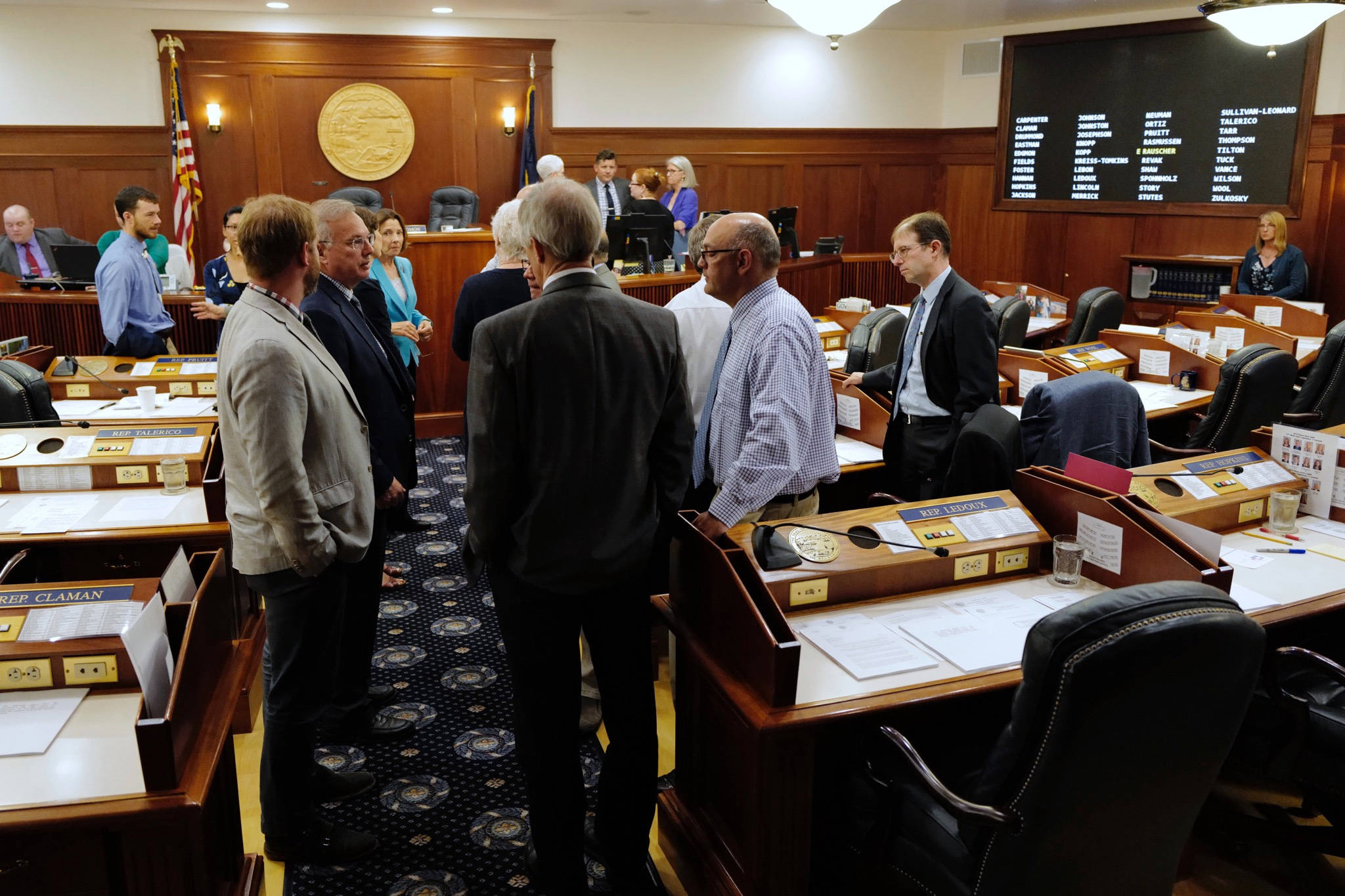ANCHORAGE — Faint hopes of Alaska lawmakers overturning severe budget cuts turned Friday into grim planning for job losses and cuts in services.
A divided legislature for the fifth day met in two locations 600 miles apart, eliminating any prospect for mustering a three-quarters majority needed to overturn line-item budget vetoes of more than $400 million by Gov. Mike Dunleavy, a first-term Republican from Wasilla.
In Juneau, the state House and Senate met in technical sessions that lasted less than five minutes and did not again consider overriding. Both bodies adjourned until Wednesday.
Lawmakers had five days after the start of the special session Monday to consider veto overrides. The deadline was midnight Friday.
Dunleavy called the special session to consider the size of Alaska Permanent Fund dividends, the annual checks to nearly every Alaskan from the earnings of a $44 billion state savings account.
Dunleavy declared the special session should meet in Wasilla. Legislative leaders instead met at the Capitol in Juneau, but more than a third of the legislators, including House Minority members and a handful of senators, gathered at a Wasilla middle school gymnasium.
They met again Friday, recited the Pledge of Allegiance and listened to an invocation and the singing of the state song. State Sen. Mia Costello, R-Anchorage, noted there again were not enough lawmakers to conduct business and ended the session.
Costello on Monday was ousted from her position as Senate majority leader. She and others gathering at the makeshift legislative hall claimed it was the legitimate special session.
University of Alaska officials on Friday continued planning for a loss of 41% of state funding.
The university, a global leader in Arctic research, was Dunleavy’s biggest veto target. He cut $130 million in state funding for the fiscal year that began July 1 on top of a $5 million cut made by the legislature.
The UA Board of Regents oversees three main campuses in Fairbanks, Anchorage and Juneau plus 13 campuses sprinkled throughout smaller communities.
University officials have already sent out furlough notices to 2,500 employees requiring them to take 10 days of unpaid leave. Regents will meet Monday in Fairbanks to consider declaring a “financial exigency,” allowing administrators to streamline layoffs.
“We’re not asking them for a formal decision about how they’re going to take reductions, where the reductions will be taken,” said UA President Jim Johnsen at a press conference Wednesday. “That would be for the meeting on July 30,”
The administration will not send out blanket pink slips and then pull some back, Johnsen said, but will attempt a strategic approach. If multiple campuses offer degrees in a certain field of study, he said, some could be eliminated.
Classes for the fall semester will go on as scheduled, he said. Nonacademic programs would be the first targets for rapid cost reduction, including athletics, Johnsen said.
“In a financial climate like we’re talking about, with cuts of this scale, everything has to be on the table,” Johnsen said.
A $135 million loss correlates to about 1,300 positions, Johnsen said, but the “tidal wave-size” ripple effects from the loss of connected funding, such as federal research grants, likely will affect 2,000 positions.
Closing all 13 satellite campuses would save only $30 million. Closing one major campus would defeat the UA mission of making higher education available where most of the population lives, he said.
Dunleavy also eliminated or reduced funding for early childhood education, public libraries, Medicaid dental coverage, behavioral health treatment grants, the state arts council and public broadcasting, the Anchorage Daily News reported.
He eliminated funding for the senior benefits program, which paid cash to poor senior citizens, ocean rangers who monitored cruise ship discharges, and the Alaska Legal Service Corp, which provides free help to poor Alaskans in civil lawsuits.
Dunleavy also reduced money to reimburse school districts for school construction, shifting that debt to municipal taxpayers.
This is an Associated Press report by Dan Joling.

